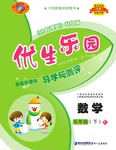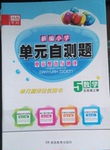题目内容
The man remained __________ he was and waited for his wife who was shopping in the market.
| A.what | B.how | C.who | D.where |
D
解析

 优生乐园系列答案
优生乐园系列答案 新编小学单元自测题系列答案
新编小学单元自测题系列答案The English are famous for their manners. The phrase, “Manners maketh the man” was coined by Englishman William of Wykeham back in 1324, but they’re just as important today. Books are written on the subject, advice columns in magazines tell people how to behave, and “finishing schools” still exist to ensure that young girls become young “ladies”.
The best example of English manners is in their mastery of the art of forming a queue. It is a popular joke in England (the land of sporting failures) to say, “if only queuing was an Olympic sport, we’d win hands down.” No one knows exactly how and when it started, but queuing plays an important role in the English social make-up. School children are taught to queue for roll-call, assembly and lunch, and English people across the land form orderly queues at shops, banks, cinemas and bus-stops every day. The English obviously aren’t the only people who queue, but they seem to do it better than anyone else. As one visitor said, “I have travelled across Europe, the Middle and Far East and nowhere have I seen the single-file queues which are formed in England.”
The English are also famously polite when it comes to language. Whereas many other notions are more direct in their communication, the English prefer a more indirect form of asking for things. For example, an American who wants to talk to a colleague might say, “Got a minute?”; however an English person will often use a more indirect means might of requesting the chat, “Sorry to bother you, but would you possibly have a minute or so to have a quick chat if you don’t mind, please?”
The English also love to apologize for things. When squeezing past someone, people say “sorry”. And they will apologize if you bump into them, “whoops! Sorry! My fault.” In fact, no one seems to say “sorry” as much as the English: “sorry I’m late. /Sorry I forgot to call you last night./I’m sorry you didn’t get the e-mail.” And so on. They also like to use “please” and “thank you” a lot. In a shop, they will say, “I’d like a packet of crisp, please. Thanks.” British students thank their lectures, a nd bosses often thank their employees for doing their jobs.
nd bosses often thank their employees for doing their jobs.
【小题1】 Why does “finishing schools” still exist to help young girls become “ladies”?
| A.Because the English mind their manners very much. |
| B.Because the English parents want to marry their daughters to the royal family. |
| C.Because the English girls are so rude that they need to be taught to be polite. |
| D.Because the English government ensures their existence. |
| A.The English love the Olympics very much. |
| B.The English spend nothing winning an Olympic medal. |
| C.The English are best at queuing. |
| D.The English prefer to queue with their hands down. |
| A.Excuse me! Give me another fork, please! |
| B.Excuse me! I have to be a bother, but would you mind awfully changing this fork, please? |
| C.Hi! Would you mind giving me another fork? |
| D.Waiter! Come here and change the fork! |
| A.The employees can bring them a lot of benefits. |
| B.The employees finish their jobs perfectly. |
| C.The English employers’ good manners lead them to do so. |
| D.The employers do it as a result of the company’s regulation. |
When a first-time father saw his newborn son, he immediately noticed the baby's ears obviously standing out from his head. He expressed his concern to the nurse that some children might be made fun of his child. A doctor examined the baby and reassured the new dad that his son was healthy---- the ears presented only a small problem with its appearance.
But the nervous father continued. He wondered if the child might suffer psychological effects of ridicule, or if they should consider plastic surgery(整形手术). The nurse assured him that it was really no problem, and he should just wait to see if the boy grows into his ears.
The father finally felt more optimistic about his child, but now he worried about his wife's reaction to those large ears. She had been delivered by operation, and had not yet seen the child.
“She doesn't take things as easily as I do,” he said to the nurse.
By this time, the new mother was settled in the recovery room and ready to meet her new baby. The nurse went along with the dad to lend some support in case this inexperienced mother became upset about her baby's large ears.
The baby was in a blanket(毛毯) with his head covered for the short trip through the cold air-conditioned corridor. The baby was placed in his mother's arms, who eased the blanket back so that she could look at her child for the first time.
She took one look at her baby's face and looked to her husband and gasped, “Oh, Honey! Look! He has your ears!”
No problem with Mom. She married those ears...and she loves the man to whom they are attached.
The poet Kahlil Gibran said, “Beauty is not in the face; beauty is a light in the heart.” It's hard to see the ears when you're looking into the light.
【小题1】When the father first saw his baby, he was worried that________.
| A.The baby might not grow up healthily. |
| B.The baby might be laughed at by others. |
| C.The baby might disappoint its mother. |
| D.the baby might have mental problems. |
| A.could not function well. |
| B.looked the same as others. |
| C.only caused a small problem. |
| D.needed to have plastic surgery. |
| A.She blamed her husband for the baby’s big ears. |
| B.She was the first to discover the baby’s large ears. |
| C.She suggested having an operation on the baby immediately. |
| D.She found something similar between the baby and its father. |
| A.The ears. | B.The parents. | C.The doctor and nurse. | D.The problems |
| A.To advise readers to listen carefully. |
| B.To draw a conclusion from the story. |
| C.To criticize the wrong attitude to physical beauty. |
| D.To stress the importance of doctor-patient relationship. |
完形填空(共20小题;每小题1.5分,满分30分。)
阅读下面短文,掌握其大意,然后从所给出的四个选项中,选出最佳选项。
After listening to everyone’s concerns and problems, Professor Smith looked over at the hostess (主持人) and asked her if she could get a paper and pen for everyone in the room. She 36 a minute later, and brought some paper and pens.
“Do me a 37 ,” Professor Smith asked. “We’re going to try something and I 38 your cooperation. On the small piece of paper please 39 the 3 biggest problems you are facing in your personal life right now. Don’t write your name on it. We’ll keep it 40 .”
The group found the experiment 41 , not knowing what was to follow.
After everyone wrote down their problems, Professor Smith asked everyone to 42 their paper and put it in a small basket that was in the front of the room. There were 43 expressions throughout the room, 44 again, everyone cooperated, wanting to know what would 45 next.
Professor Smith shook the basket and then he 46 around the room and asked each person to 47 a paper from the basket. After he had done that, he sat back down and looked around the room.
“Friends, 48 the paper and read to yourself the problems that you 49 ,” Professor Smith said.
Then, Professor Smith 50 at the woman sitting on his left and asked, “Lisa, would you like to 51 your problems that you wrote down with those that you chose from the basket?”
“No,” Lisa said.
Next, Professor Smith asked the man sitting next to Lisa the 52 question. “Would you like to exchange the problems you wrote down with those that you chose from the basket?”
53 the reply was “No.”
Professor Smith went around the whole room. Everyone had a 54 to answer.
Surprisingly, the answers were all the same — no, no, no, no…. Some people said that “I can settle my own problems, but I can’t 55 what I chose out of the basket”. Some people said “Wow — these make my problems look like nothing.”
|
1. |
|
|
2. |
|
|
3. |
|
|
4. |
|
|
5. |
|
|
6. |
|
|
7. |
|
|
8. |
|
|
9. |
|
|
10. |
|
|
11. |
|
|
12. |
|
|
13. |
|
|
14. |
|
|
15. |
|
|
16. |
|
|
17. |
|
|
18. |
|
|
19. |
|
|
20. |
|